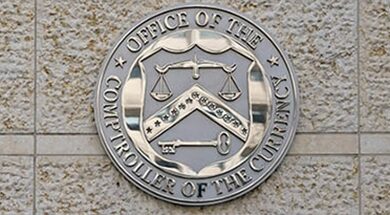The War Against Crypto: SEC Charges Coinbase for Operating Unregistered Crypto Asset Trading Platform
Coinbase sees the UAE as a web3 ecosystem leader and investment hub, filling regulatory gaps left by other jurisdictions.

The Securities and Exchange Commission (SEC) has filed charges against Coinbase, Inc., accusing the company of operating its crypto asset trading platform as an unregistered national securities exchange, broker, and clearing agency.
Additionally, Coinbase has been charged for failing to register the offer and sale of its crypto asset staking-as-a-service program.
According to the SEC’s complaint, Coinbase has allegedly facilitated the buying and selling of crypto asset securities unlawfully, generating billions of dollars since at least 2019.
The SEC further explained that Coinbase has performed the functions of an exchange, broker, and clearing agency without obtaining the necessary registration from the Commission as mandated by law.
The complaint highlights several actions conducted by Coinbase, including:
- Providing a marketplace that brings together buyers and sellers of securities using established, non-discretionary methods of order interaction.
- Engaging in securities transactions on behalf of Coinbase customers.
- Offering facilities for data comparison related to settlement terms of crypto asset securities transactions, acting as an intermediary in settling transactions, and functioning as a securities depository.
The SEC’s complaint argues that Coinbase’s failure to register has deprived investors of crucial protection, such as SEC inspection, recordkeeping obligations, and safeguards against conflicts of interest.
Furthermore, the complaint states that Coinbase’s holding company, Coinbase Global Inc. (CGI), exercises control over Coinbase and is therefore also held liable for certain violations committed by Coinbase.
SEC Alleges Unregistered Securities Offering in Relation to Staking-as-a-Service Program
The Securities and Exchange Commission (SEC) has accused Coinbase of conducting an unregistered securities offering through its staking-as-a-service program since 2019. This program enables customers to earn profits by participating in the “proof of stake” mechanisms of specific blockchains, as well as Coinbase’s operations.
According to the allegations, Coinbase combines customers’ stakeable crypto assets into pools, stakes them to provide blockchain transaction validation services, and shares a portion of the resulting rewards with customers whose assets were included in the pool. However, the SEC claims that Coinbase failed to register these offers and sales of the staking program as required by law.
Gurbir S. Grewal, Director of the SEC’s Division of Enforcement, stressed that disregarding rules due to personal preferences is unacceptable, as the consequences for investors are significant. He stated that Coinbase was fully aware of the applicability of federal securities laws to its business activities but deliberately chose not to comply. While Coinbase may have earned substantial profits through these calculated decisions, it came at the expense of investors who were deprived of the protections they deserved. The SEC’s action aims to hold Coinbase accountable for its choices.
The recent developments of the SEC charging both Binance and Coinbase, combined with US lawmakers addressing concerns about the “tax gap” in the crypto industry, provide strong indications that a war on crypto has already begun.
During a live television appearance on CNBC’s Squawk Box, Gary Gensler, the Chair of the U.S. Securities and Exchange Commission (SEC), emphasized that there is no necessity for additional digital currencies, stating that the existing ones such as the U.S. dollar, euro, and yen are already digital.
He said, “These trading platforms, they call themselves exchanges, are co-mingling a number of functions. In traditional finance, we don’t see the New York Stock Exchange also operating a hedge fund, making markets, and as we alleged in Binance, having a sister organization flooding the platform with transactions called wash trading.”
The allegations against Binance also echoed similar accusations made against FTX and Alameda Research, involving the mingling of assets, misuse of customer funds, and potential market manipulation.
Gensler acknowledged that the lawsuits took considerable time and effort to develop, emphasizing the meticulous investigative process employed by the SEC.
This aggressive stance towards cryptocurrency companies not only poses challenges for the firms being sued, but also for the United States as a whole. In fact, the migration of companies to crypto-friendly countries like the UAE raises concerns about the potential loss of business and innovation in the US.
The question remains: what will happen next in this ongoing battle between regulators and the crypto industry? The future of crypto in the US hangs in the balance, and it remains to be seen how this conflict will shape the landscape of digital currencies and their adoption globally.





